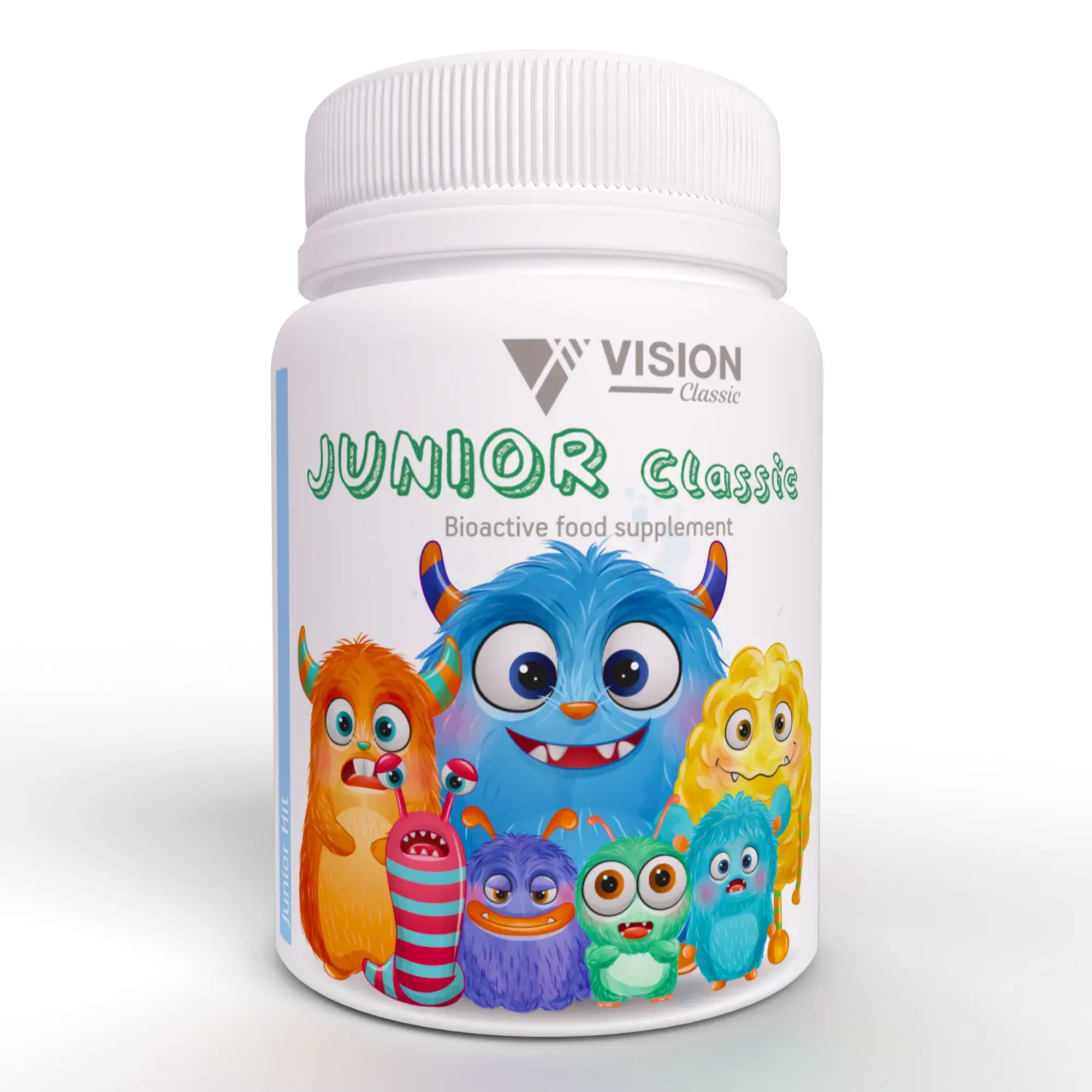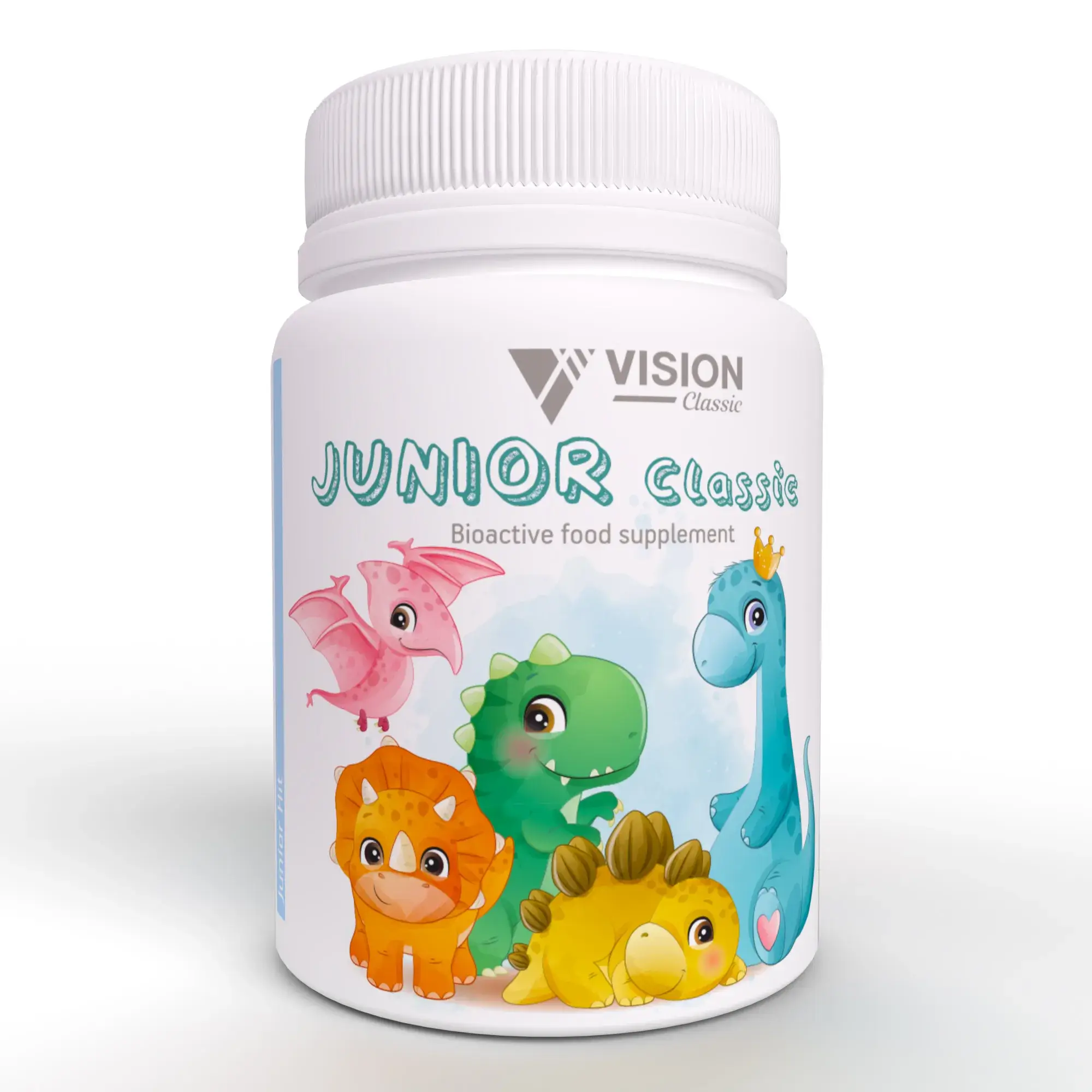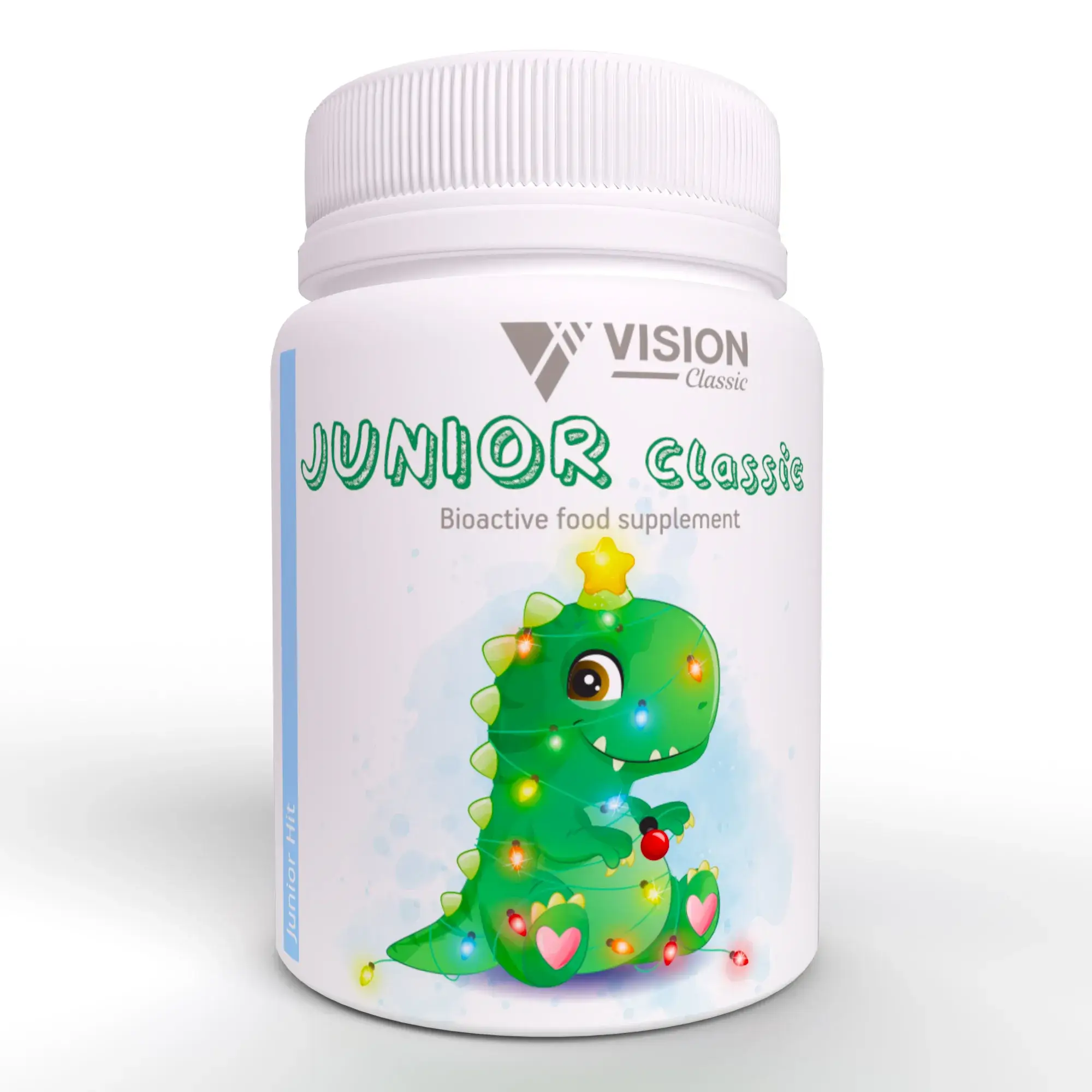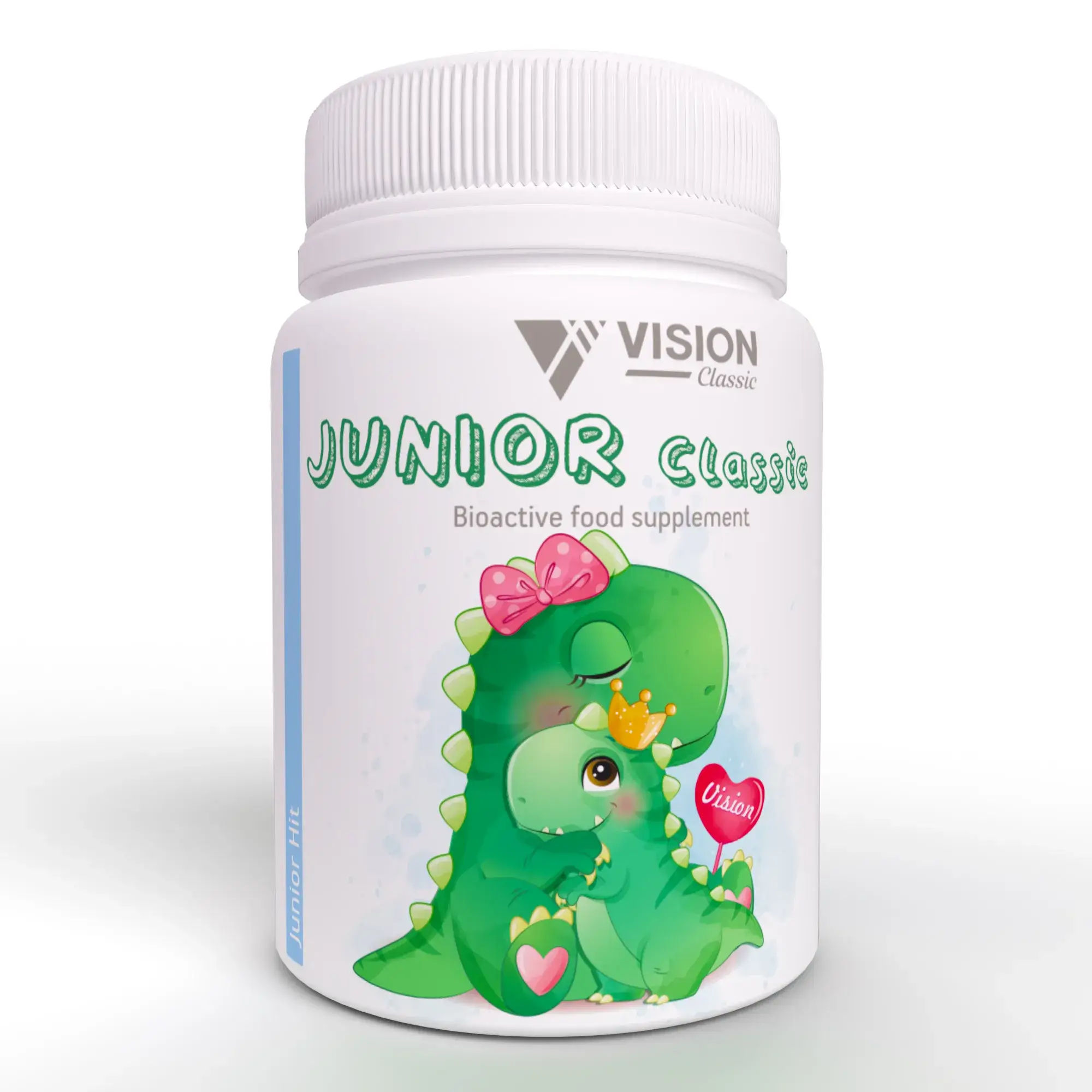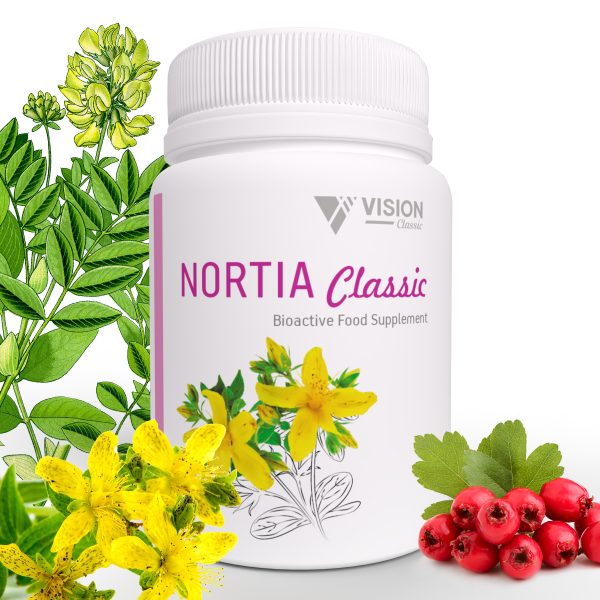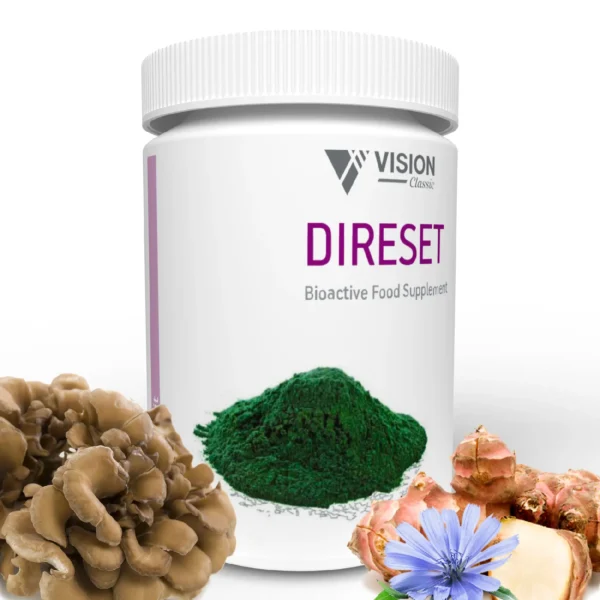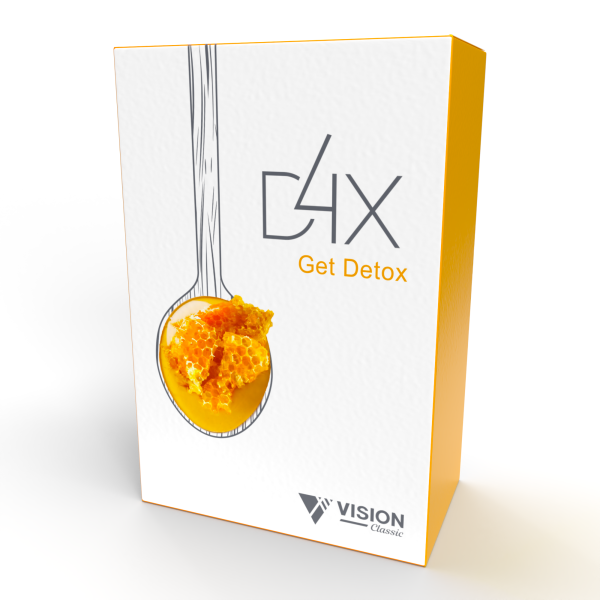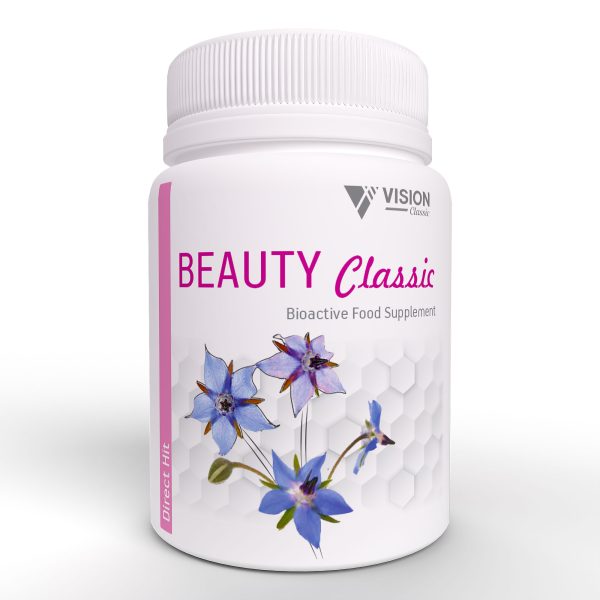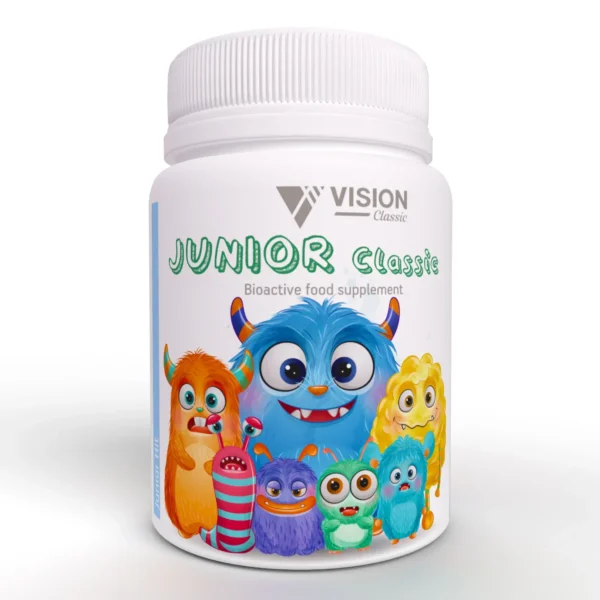Junior Classic is thoughtfully formulated to provide a balanced combination of vitamins and minerals that support the proper development of a child’s body during intensive growth. Its active ingredients work at the cellular level, contributing to the healthy function of organs and systems involved in physical and cognitive development. The formula ensures that the daily nutritional needs of children are complemented in a safe and practical way.
Support for Cognitive Development and Nervous System
Children need adequate amounts of B-group vitamins for healthy nerve function, balanced behavior and effective learning.
• Vitamin B1 contributes to normal transmission of nerve impulses.
• Vitamin B6 supports serotonin formation, which plays a role in mood balance, motor activity and stress adaptation.
• Vitamins C and E provide antioxidant support to protect sensitive brain cells, helping children stay focused and energized.
• Vitamin E and zinc help support memory, concentration and normal cognitive performance.
Support for Immunity and Blood Health
• Vitamin C contributes to normal immune function and protects cells from oxidative stress.
• Iron helps maintain normal red blood cell formation, supporting oxygen transport in growing bodies.
• Vitamins B6, B9 and B12 help support normal formation of blood cells and cellular energy production.
• Zinc and magnesium play a role in supporting cellular protection, learning concentration and emotional balance.
Digestive and Metabolic Support
A balanced metabolism and well-functioning digestive system are essential during growth.
• B-group vitamins help convert food into energy, support digestion and nutritional absorption.
• Chromium contributes to normal metabolism of carbohydrates and lipids.
• Iodine supports growth, development and cognitive function, contributing to normal thyroid activity and energy regulation.
• Magnesium supports electrolyte balance and digestive comfort.
Support for Healthy Bones, Teeth and Growth
During periods of active development, children need proper support to build a strong skeletal system.
• Vitamin D3 contributes to normal calcium absorption and bone development.
• Vitamin K supports proper calcium utilization in bones rather than blood vessels, helping maintain bone density.
• Manganese, copper and zinc play a role in maintaining bone structure, collagen formation and connective tissue strength.
• Beta-carotene and vitamin C support the formation of collagen, promoting healthy skin, bones and teeth.
Antioxidant Support and Adaptation to Environment
Children are often exposed to environmental influences while growing, learning and exploring.
• Vitamins C, E, selenium and beta-carotene support antioxidant defense at the cellular level.
• Copper and manganese contribute to normal connective tissue development.
• Together, these nutrients help support the body’s natural adaptive responses and overall vitality.
Junior Classic comes in pleasant chewable tablets with natural strawberry flavor, making daily supplementation enjoyable for children.
Properties of Junior Classic
• Supports proper physical development
• Complements daily vitamin and mineral intake
• Contributes to healthy cognitive function, focus and memory
• Supports strong bones, teeth and connective tissues
• Helps maintain balanced energy metabolism
• Contributes to normal immune function
• Supports healthy sleep, behavior and emotional balance
• Encourages healthy appetite and digestion
• Provides comprehensive support for growing bodies
Composition: iron, zinc , manganese , copper , chromium , iodine , vitamins B1, B2, B3, B5, B6, biotin, folic acid , B12 , C , K , D3 , E, magnesium , selenium and beta-carotene .
Method of administration: For children older than 3 years, one tablet once or twice a day.
Amount: 60 chewable tablets
Net weight: 60 g
| Active ingredients: | One tablet (1 g) contains: | %NRV* |
| Iron | 3,1 mg | 22,1% |
| Zinc | 2,67 mg | 26,7% |
| Manganese | 0,45 mg | 22,5% |
| Copper | 190 µg | 19,0% |
| Chromium | 9,5 µg | 23,7% |
| Iodine | 28 µg | 18,7% |
| Vitamin B1 | 0,43 mg | 39,1% |
| Vitamin B2 | 0,64 mg | 45,7% |
| Niacin | 5,26 mg NE | 32,9% |
| Pantothenic acid | 1,18 mg | 19,7% |
| Vitamin B6 | 0,54 mg | 38,6% |
| Biotin | 7,75 µg | 15,5% |
| Folic acid | 110 µg | 55,0% |
| Vitamin B12 | 0,63 µg | 25,2% |
| Vitamin C | 22 mg | 27,5% |
| Vitamin Е | 3,15 mg α-TE** | 26,2% |
| Vitamin К | 34 µg | 45,3% |
| Vitamin D3 | 2,7 µg | 54,0% |
| Magnesium | 56,25 mg | 15% |
| Selenium | 5 µg | 9% |
| Beta-carotene | 1700 µg | ** |
*NRV – nutritional reference value
** – nutritional reference value not established
***α-TE=α-tocopherol equivalent
Food supplement. Not a medicine.
Does not replace a varied and balanced diet and healthy lifestyle.
Results may vary; consult your doctor if you have a medical condition or use medication.

